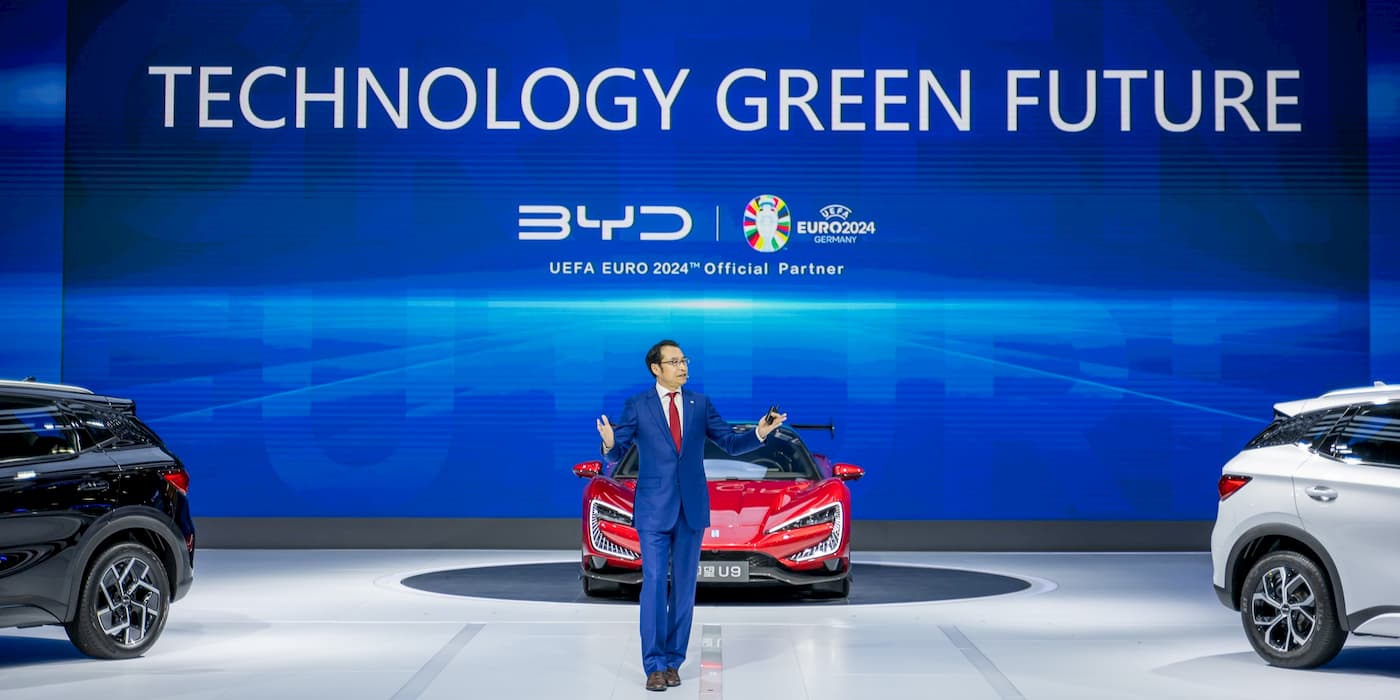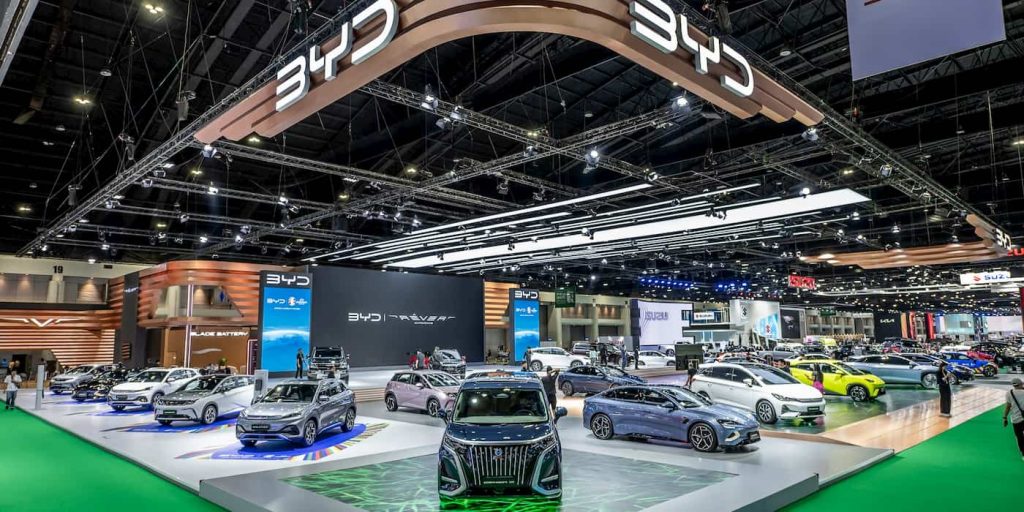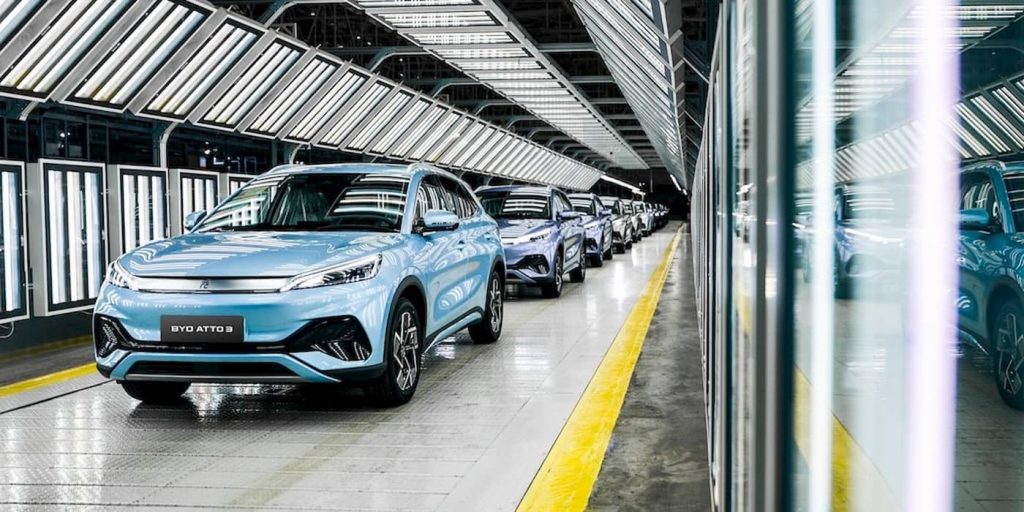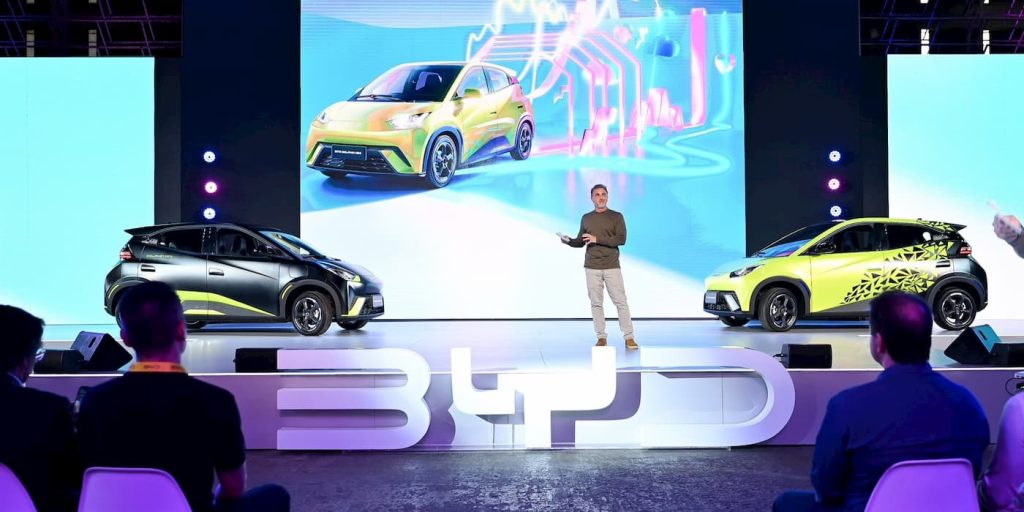
BYD, a leading EV maker, is expanding rapidly overseas following its success in the domestic market. The company is gearing up to commence production at its new EV plant in Thailand in the third quarter to drive international sales growth.
BYD set to begin EV production in Thailand in Q3
After showcasing its full range of brands at the Bangkok Auto Show, BYD announced its plans to start EV production in Thailand in Q3.
Last year, BYD was the top-selling EV manufacturer in Thailand, with its fully electric BYD Atto 3 SUV leading the pack with over 19,200 units delivered. The rapid sales growth prompted BYD’s general manager of the Asia-Pacific Sales Division to mention that customers were lining up to purchase the car after achieving its 10,000 sales target in just 42 days.
Construction of BYD’s first car plant in Thailand, initiated in March last year, is nearing completion, with plans to finish in the coming months.
With a significant investment, BYD aims to create numerous job opportunities and introduce advanced EV manufacturing technology to the region. The company recently displayed its full range of brands overseas for the first time, including BYD, Yangwang, Fang Cheng Bao, and Denza.

New models such as the Song Max, Sealion (Sea Lion 07 in China), Song Plus (Seal U), Yangwang U9 supercar, and the Fang Cheng Bao 5 were unveiled in Thailand.
Once operational, BYD’s new plant in Thailand aims to produce 150,000 EVs annually. This move reinforces the automaker’s commitment to the region as Thailand strives for 30% of locally manufactured vehicles to be electric.

Following the launch of its facility in Uzbekistan in January, BYD is also establishing new plants in Hungary and Brazil, marking an expansion of its brand across global markets.
Recent reports suggest that BYD is postponing plans for an additional factory in Vietnam amidst its ongoing expansion.

Electrek’s Take
Despite the long-standing dominance of Japanese automakers like Toyota in the Thai auto market, BYD is making notable strides. Toyota’s sales have decreased by over 24% in Thailand through February, as EV manufacturers such as BYD continue to capture market share.
According to the Federation of Thai Industries, ICE car production plummeted by 95% year over year in January, while EV production surged by a staggering 9,214%. BYD is well-positioned to benefit from Thailand’s transition to EVs with its diverse lineup of locally manufactured models.
Heralding a “liberation battle” against ICE cars, BYD is determined to shift the tide towards EVs, as the company plans to further reduce costs. Lowering EV prices and introducing a series of more affordable “Honor Edition” models, including its budget-friendly Seagull EV starting at just $9,700 (69,800 yuan), has caught the attention of its competitors.
Ford’s CEO, Jim Farley, commended the low-cost EV and highlighted the looming competition from Chinese electric cars. Farley issued a warning to automakers, stating that a failure to keep pace could jeopardize “20% to 30% of your revenue.”
In response, Ford is realigning its strategy to prioritize smaller, more affordable EVs. The company’s initial low-cost EV offerings, a compact pickup and SUV, are slated for a 2026 release with a price point around $25,000, positioned to rival Tesla’s entry-level $25,000 EV.
Source: CnEVPost, BYD Weibo
FTC: We use income earning auto affiliate links. More.

